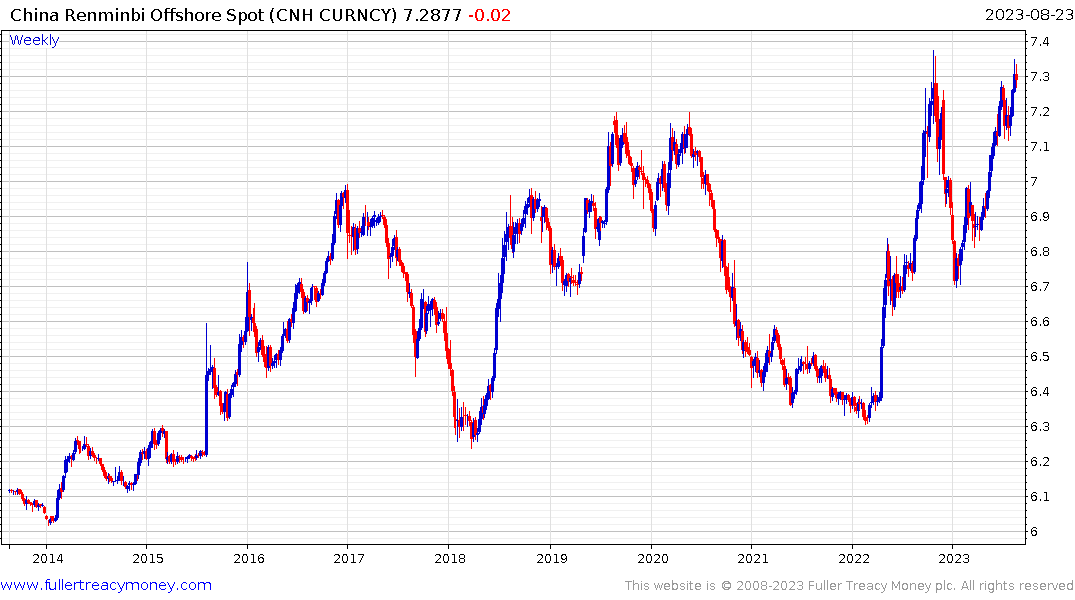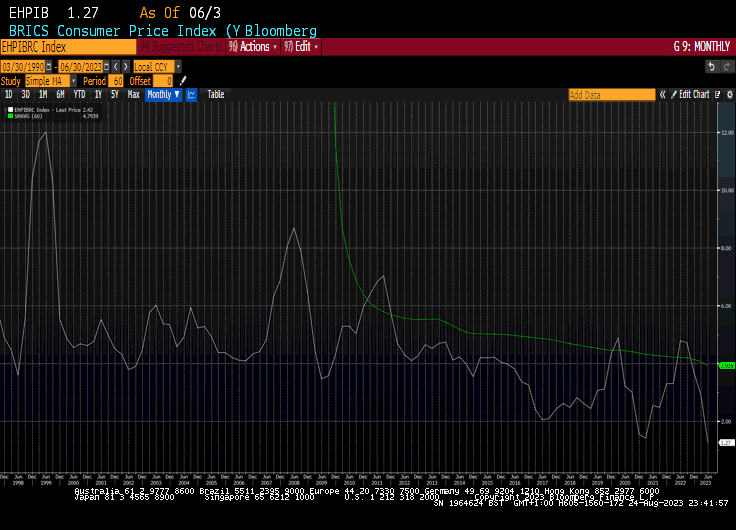BRICS Summit key themes and challenges
Thanks to a subscriber for this report from Standard Bank which may be of interest. Here is a section:
Expanding intra-BRICS local currency settlement. In our view, the conversation around the creation of a BRICS currency is a sidenote to the real topic, which is the expanded use of the Chinese RMB in BRICS commercial exchanges. China is keen to push for change in the international monetary system, eager to expand the geographical reach of the RMB. This objective is uncontested amongst the BRICS. We expect to see concrete policies emerging from the summit, creating mechanisms and avenues for greater use of RMB in transactions and promoting direct trading between RMB and BRICS currencies.
China’s towering role in the BRICS remains a strength, and a risk. Except for the surge in India’s crude and coal imports from Russia, which pushed India’s imports up from USD8.6bn in 2021, to USD41bn in 2022, trade with China accounts for the vast majority (75%) of intra-BRICS trade. China is the largest bilateral trade partner for three BRICS members: SA, Brazil, and Russia. Indeed, China’s participation in BRICS imbues the group with much of its broader influence, and potential. And yet, for the group to be a legitimate and collaborative reflection of the interests of the Global South (and of each of its members) it must push against the agenda being singularly established by Beijing. How this tension is navigated will not only be a defining feature of the upcoming summit, but the group’s future relevance and capacity for cohesion more broadly.
Here is a link to the full report.
China’s towering influence relative to each of the individual members of the BRICS group is not something that can be ignored when the practicalities of trade are considered. Any commitment to creating a common currency is overshadowed by China’s desire to settle trade in Renminbi. That of course begs the question whether China is willing to increase the supply of the currency to allow it to be an international medium of change beyond bilateral ties?

Refusing to flood the economy with liquidity and attempting to deflation the property bubble are potentially intentional acts to support the purchasing power of the Renminbi and to support the bond market. If China wants other countries to accept its currency and investors to have faith in its bond market, fiscal restraint is a major consideration.
The more I think about the trend of policy, the clearer the direction becomes. China’s long-term aim is to be the global hegemon. They are eager for the BRICS group to expand as a competitor to the OECD and for the Renminbi to the be currency of choice for bilateral trade. They are attempting to deleverage their own economy now because that will put them in a strong competitive position when deleveraging is imposed on the overleveraged and underfunded social services of OECD countries.
 The BRICS CPI Index is currently holding around 1.27% which is a new low. That helps to highlight the inflationary pressures that dominate media coverage in several countries is not a truly global phenomenon. Instead, it suggests deflation is a more pressure concern over the coming 12 months.
The BRICS CPI Index is currently holding around 1.27% which is a new low. That helps to highlight the inflationary pressures that dominate media coverage in several countries is not a truly global phenomenon. Instead, it suggests deflation is a more pressure concern over the coming 12 months.


